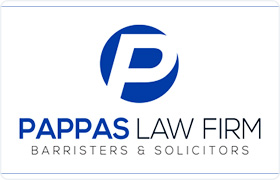Etobicoke Divorce & Family Law Lawyer, Ontario, page 5
Sponsored Law Firm
-
 x
x

Click For More Info:
-
Pappas Law Firm
3100 Steeles Ave W Suite 602 Vaughan, ON L4K 3R1» view mapDivorce & Family Pay No Legal Fees Until You Get Paid
Pappas Law Firm specializes in civil litigation and concentrates on serious personal injury claims.
800-953-0441
Not enough matches for Etobicoke Divorce & Family Law lawyer.
Below are all Etobicoke lawyers.
Walter Gregory Kuplowsky
Corporate, Commercial Real Estate, Estate Planning, Trusts
Status: In Good Standing
James David Helm
Employment, Litigation, Commercial Real Estate, Business & Trade
Status: In Good Standing
Paul Anthony Gaglia
Commercial Real Estate, Civil Rights, Litigation, Collection
Status: In Good Standing
 George Pappas Vaughan, ON
George Pappas Vaughan, ON AboutPappas Law Firm
AboutPappas Law Firm Practice AreasExpertise
Practice AreasExpertise
